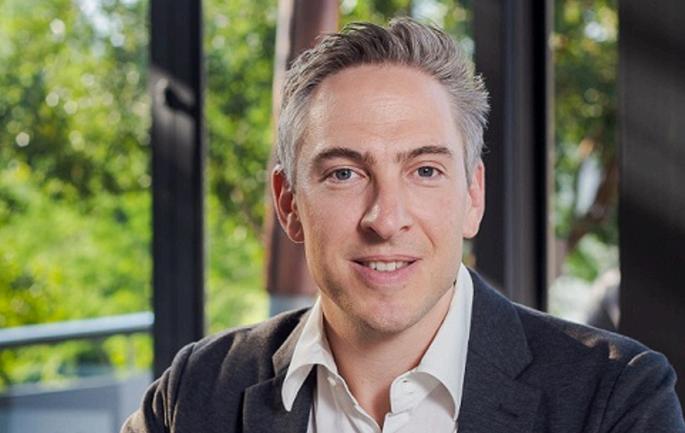
5 minute read
Business Events Africa — November 2024
Sustainable tourism: A rising priority for the hospitality and travel sectors
World Sustainability Day took place recently, and the focus is turning towards an increasingly critical issue — sustainable tourism. The recent signing of the Climate Change Act by President Cyril Ramaphosa has made it clear: South Africa’s tourism sector needs to evolve if it wants to meet the challenges of climate change head-on. Companies such as The Capital Hotels, Apartments and Hotels, and Cathay Pacific are at the forefront of this transition, illustrating that sustainability can coexist with growth and innovation.


Pioneering green practices in hospitality
Marc Wachsberger, chief executive officer of The Capital Hotels, sees the Climate Change Act as a pivotal moment for the hospitality industry.“The Act highlights the critical need for sustainable practices across all sectors, and tourism is no exception. For South African hospitality to thrive, we must adopt energyefficient solutions that reduce our carbon footprint while ensuring a quality experience for our guests,”he said.
The Capital Hotels, Apartments and Resorts has become a champion of sustainable hospitality, investing millions into renewable energy initiatives to power 80 per cent of its properties with solar by 2025. This move not only aims to reduce the group’s carbon footprint but also provides a buffer against the challenges of load shedding — an issue that continues to affect businesses across the country. The Capital is also on the cusp of signing an agreement with Discovery Green which will provide wind and solar power for their hotels and will cover 90 per cent of their hotel usage.
Beyond energy, The Capital is leading the charge in water conservation, an increasingly critical issue in South Africa. The group has implemented a borehole project at its SEVEN Villa and The Capital Zimbali properties, with The Capital On The Park slated to be next. Currently, this initiative allows Zimbali’s water needs to be fully met by borehole sources, reducing dependence on municipal supply. The aim is for the other properties to follow suit. Moreover, The Capital Pearls and Zimbali, two luxury spots in Durban, have embraced innovative measures to address water scarcity and quality:
Blue Drop Standards: These resorts adhere to a South African programme ensuring top water quality and sanitation for guests, enhancing the safety and reliability of their water sources.
Advanced Purification Systems: These systems treat and reuse water, reducing reliance on municipal supplies and conserving precious resources.
Internal Water Circulation: The Capital Pearls employs an internal system to manage water use, ensuring efficient usage and reducing the demand on local water infrastructure.
Reverse Osmosis Systems: The Capital Zimbali has a backup reverse osmosis system that ensures clean water availability, even if the city supply fails.
These investments form part of a broader drive within the sector to implement energy efficient practices. From water conservation measures to solar-powered energy systems, The Capital is leading the charge, demonstrating that environmental responsibility can go handin-hand with business growth.
Towards a cleaner sky
For Cathay Pacific, sustainability takes to the skies. The airline has committed to achieving net-zero carbon emissions by 2050 and has set a near-term goal to reduce its carbon intensity by 12 per cent from 2019 levels by 2030. A central part of this strategy is the increased use of Sustainable Aviation Fuel (SAF), a cleaner alternative to fossil jet fuel that is produced from sustainable and renewable sources, which can reduce over 80 per cent of its lifecycle carbon emissions. The airline has been one of the pioneers, working to expand the SAF supply chain by partnering with global suppliers and corporate partners to scale up the demand.
“We’re on a mission to move people forward sustainably and responsibly, and it’s a collective effort to travel greener together,”says Shanna Docherty, regional head of trade sales for Middle East and Africa (MEA) at Cathay Pacific. “We’re committed to the use of SAF and working closely with our partners to make air travel more sustainable. These efforts not only help us achieve our climate targets but also allow our customers to be part of the journey together.”
Additionally, the airline is tackling waste reduction. By 2025, Cathay Pacific aims to reduce single-use plastic items to just 1.5 pieces per passenger, down from 7.7 in 2019, and to cut cabin waste by 30 per cent by 2030. The focus is on incorporating circular economy principles, from how raw materials are produced, to how we design more reusable products, to how we recycle waste products.
Collectively committing to a greener future
Together, The Capital Hotels and Cathay Pacific demonstrate that sustainability in tourism is achievable through collaboration and innovation. As World Sustainability Day draws near, their efforts highlight the importance of transitioning to greener practices — not only for the health of the planet, but also for the longevity and success of the tourism industry. By embracing renewable energy, investing in cutting-edge technology, and rethinking travel’s environmental impact, these industry leaders are setting a new standard for sustainable tourism in South Africa and beyond. Their collective commitment is a reminder that while the journey toward sustainability may be complex, the rewards – for businesses, travellers, and the environment – are well worth the effort.










